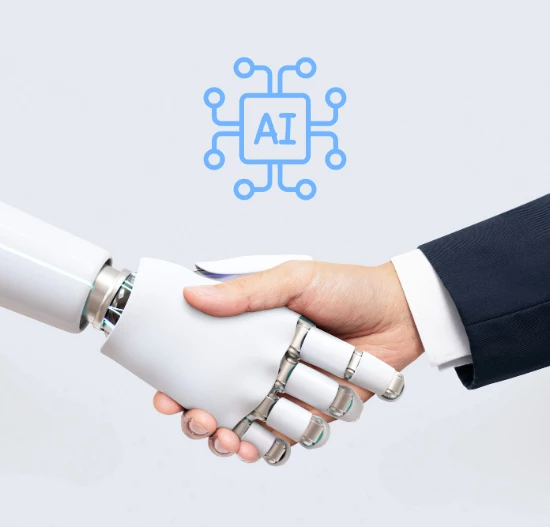Can Artificial Intelligence Replace Human Intelligence?
In the past, every person had heard of artificial intelligence (AI), but few of us were fully aware of its practical uses. However, a new era of AI has begun with free and user-friendly applications like Whisper AI, Bing AI, and ChatGPT being made available online. With just a few commands and instructions, users may now create copy, lengthy content, photos, presentations, and even webpages. Isn't it incredible?
Still, a lot of people ask, "Can artificial intelligence replace human intelligence?" No, is the simple response. AI cannot fully take the place of human intelligence. AI lacks human creativity, social intelligence, and general intelligence, even though it can complete some tasks faster and more accurately than humans. We'll look at what AI is, its drawbacks, and its potential in this blog.
Understanding Artificial Intelligence & It’s Potential
AI is basically a technology that makes it possible for robots to carry out operations like pattern recognition, decision-making, and natural language processing that would normally need human intelligence.
However artificial intelligence (AI) has been in some form for several decades, its development has grown faster recently due to improvements in processing power and data analysis. AI has been used in many different applications nowadays, such as virtual personal assistants and security systems.

Let’s Explore its Versatility
Below is just a small glimpse of what AI can accomplish; there's a whole world of ways AI can make life easier for people.
- AI can analyze large amounts of data quickly and accurately.
- It powers virtual assistants like Siri and Alexa which makes our lives easier.
- AI can translate languages in real-time which helps in breaking down communication barriers.
- AI algorithms improve the accuracy of online search results and recommendations.
- AI-powered chatbots provide instant customer support on websites and apps.
- AI algorithms improve the correctness of speech recognition systems, making voice-controlled devices more reliable.
- It assists in predicting weather patterns, helping us prepare for natural disasters.
The Limitations of AI
AI has limitations even though it has huge potential to change many areas of life. The major limitation of AI is absence of common sense and understanding. AI systems, in contrast to humans, often have trouble understanding description and situational ideas. Furthermore, because AI algorithms primarily depend on data, faulty or incomplete training data may lead to bias or generate inaccurate results. Additionally, questions regarding AI technologies' wide adoption and social impact are raised by ongoing worries about privacy, security, and ethical implications.
AI as a Tool, Not a Replacement
AI is a powerful tool for supporting humans in various tasks, rather than replacing human intelligence. It collaborates with us to boost our capabilities and simplify our lives. You consider AI as a helpful assistant that manages repetitive or data-intensive tasks, allowing us to dedicate our time to more complex and innovative jobs. By accepting AI as a tool and not a substitute, we can hold its potential to address challenges, simplify operations, and enhance our daily routines, all while retaining control and accountability over its utilization.
As AI progresses further, it is highly likely to become even more involved in our day-to-day routines. The crucial factor is to find the right balance between utilizing AI's capabilities and applying the strengths of human intelligence to effectively tackle major challenges and project the betterment of innovation.

